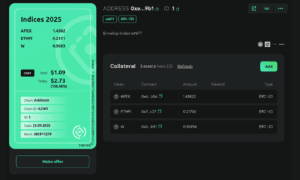Gaming has come a long way from its humble beginnings. It has evolved from simple pixelated graphics and beeping sounds to complex, immersive worlds that engage players on multiple levels. One of the key aspects of many video games is the concept of in-game currency, often represented as gaming coins. These coins play a crucial role in enhancing the gaming experience and are utilized in various ways. In this blog post, we will delve deeper into the different types of gaming coins and their roles in the gaming world.
Gold Coins
Gold coins are perhaps the most classic and recognizable type of gaming coins. They have been around since the early days of video gaming and are still widely used in various genres of games. In fantasy-themed games, players often collect gold coins by defeating enemies, completing quests, or exploring dungeons. These coins can be spent on new equipment, upgrades, and other in-game advantages. Gold coins have a timeless appeal and are associated with the concept of treasure in video games. Their significance extends beyond just being a means of trade; they evoke a sense of accomplishment and wealth accumulation in the gaming world.
Gems or Crystals
Gems, crystals, or other valuable gemstones are a popular alternative to traditional gold coins. They are often used in mobile and free-to-play games. These in-game currencies are typically obtained through various means, including in-game purchases, achievements, or daily rewards. Gems are versatile and can be used to speed up game progress, purchase premium items, or access special features. Their rarity often makes them more sought after by players. Gems introduce an additional layer of strategy, as players must decide when and how to spend them, adding a sense of value to these virtual treasures.
Coins with Special Abilities
In some games, coins have unique properties or abilities beyond being a standard form of currency. These special coins can add an exciting and strategic twist to the gameplay. For instance, you might encounter gaming coins that grant extra lives, unlock secret passages, or temporarily boost your character’s abilities. These special coins not only serve as a currency but also become coveted power-ups within the game world. Collecting and using them can lead to thrilling moments of triumph and success.
Tokens or Tickets
Tokens, tickets, or similar items are used in games such as arcades, amusement parks, and carnival-style mobile games. Instead of accumulating a traditional currency, players collect tokens, which can be exchanged for chances to win prizes, unlock special mini-games, or participate in various activities within the game. These tokens create a sense of anticipation and excitement as players aim to collect enough to redeem for valuable rewards. They introduce an element of nostalgia, reminiscent of real-world arcades and fairgrounds, making the gaming experience more immersive.
Crafting Materials
In some games, coins aren’t just for buying items; they can be used as crafting materials to create new gear, weapons, or items. Players may collect different types of coins or trade them for crafting recipes, enhancing the crafting aspect of the game. Crafting materials in the form of coins add depth to the gameplay, requiring players to make choices about what to create, further immersing them in the game’s world and economy.
Regional or Themed Coins
Some games introduce unique coins specific to certain regions or themes. For example, a game set in a pirate world may use doubloons or pieces of eight as its in-game currency, adding a thematic touch to the gaming experience. These themed coins contribute to world-building and immerse players in the game’s lore, making the currency a part of the story and environment.
Real Money Coins
While not strictly in-game currency, real money coins are used in freemium and pay-to-win games. Players can purchase these coins with real currency to gain advantages or speed up their progress. This approach has garnered mixed reactions, with some players enjoying the convenience and others disliking the pay-to-win aspect. Real money coins represent a controversial aspect of modern gaming, as they offer shortcuts to success but can also lead to imbalances in gameplay.
Virtual Currencies with Real-World Value
In recent years, some games have introduced virtual currencies that can be exchanged for real-world money or goods. These currencies have blurred the lines between the virtual and physical worlds, creating a unique economic ecosystem. Players can buy, sell, and trade these virtual currencies on online marketplaces, effectively turning their in-game achievements into real-world assets. This phenomenon has led to the rise of professional gamers and in-game economies, where virtual coins hold significant real-world value.
Conclusion
Gaming coins come in various forms, each with its unique role and impact on the gaming experience. Whether they are traditional gold coins, gems with special abilities, or tokens for mini-games, these in-game currencies add depth and excitement to the worlds created by game developers. As video games continue to evolve, the types and uses of gaming coins will also evolve, shaping the way players interact with virtual economies and enhancing the overall gaming experience. So, the next time you collect a handful of gaming coins, take a moment to appreciate the thought and creativity that went into their design and implementation within your favorite games. Gaming coins are not just virtual currency; they are an integral part of the gaming universe, enriching the player’s journey with each acquisition and expenditure.



































